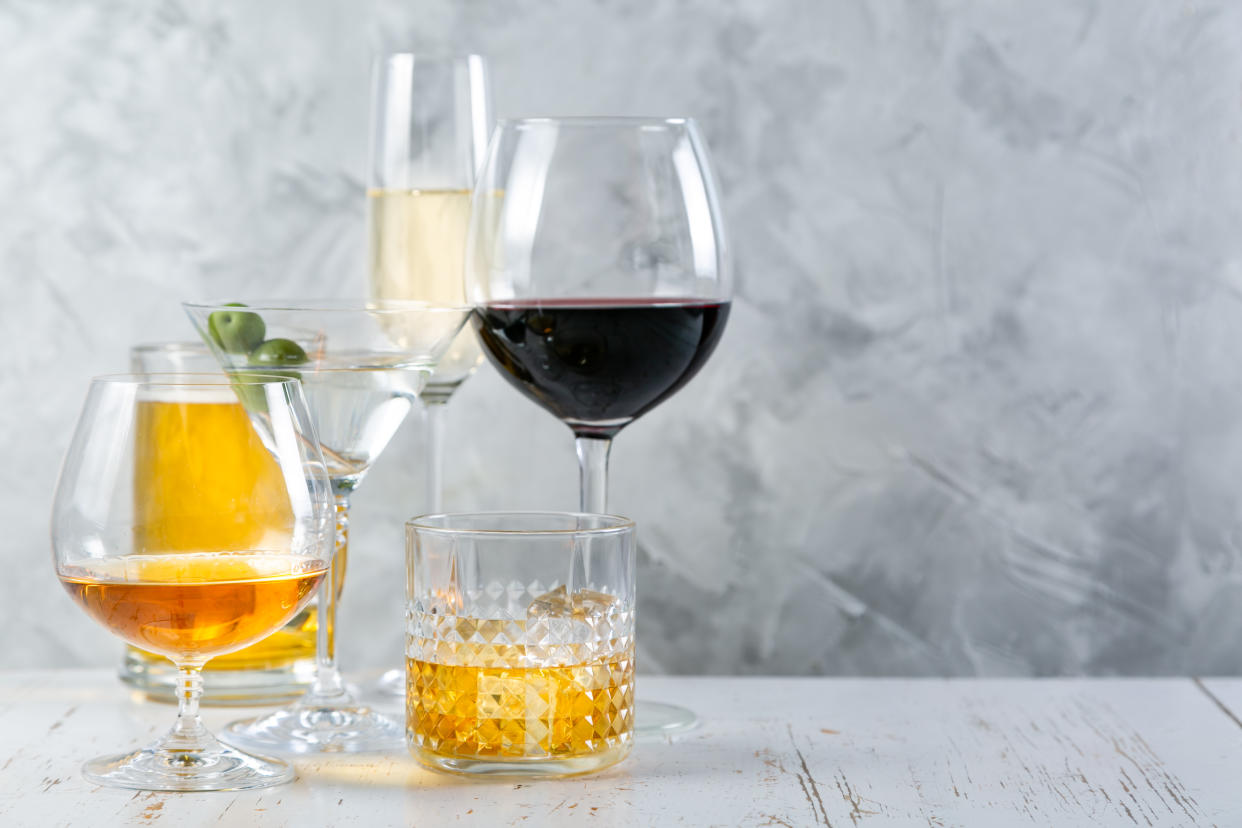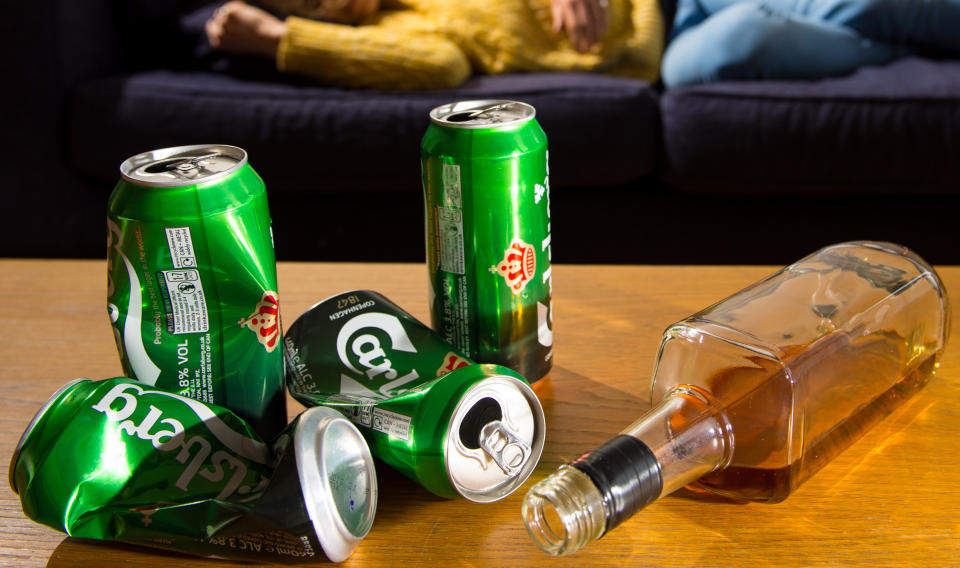Does some alcohol cause worse hangovers than others?

From a splitting headache and crippling nausea to a low mood and paranoia, there’s no denying hangovers are unpleasant.
Many people claim to have certain drinks that particularly “set them off”.
Some allege gin, known as “mother’s ruin”, leaves them teary the next day, while the “richness” of red wine can be too much for others to stomach.
But is there any truth to these claims?
READ MORE: Should you do Dry January?
Dehydration is the driving force of hangovers. While it may seem counterintuitive that drinking will leave you parched, the dehydrating properties of alcohol cannot be underestimated.
“Alcohol is a diuretic substance,” Dr Daniel Atkinson, GP and clinical lead at Treated.com, told Yahoo UK.
“Diuretics encourage the body to remove fluids from the blood.”
This causes excessive urination, triggering dehydration that leads to headaches and dizziness.
“Drinks with a higher alcohol content, like wine and spirits, cause the body to do this at an increased rate,” Dr Atkinson said.
“That’s not to say, however, drinks like beer and cider won’t dehydrate you, too. It might just happen to a lesser extent.”
READ MORE: A pear, lime and coconut water smoothie could be the 'ultimate hangover cure'
Those prone to a splitting headache after a night on the town may also benefit from choosing lighter-coloured spirits.
“Dark drinks – like whiskey, dark rum and red wine – contain something called congeners, which come about during the fermentation process when alcohol is made,” Dr Atkinson said.
“Some evidence shows the more congeners we consume, because they are essentially toxins, can contribute toward more severe hangovers.
“However, this doesn’t mean to say if you stick with white wine the whole night you’ll be fine.
“All drinks cause hangovers, some may just interfere more greatly with the severity.”
It could also be wise to avoid cocktails and sugary alcopops, despite the latter’s relatively low alcohol content.
“Mixers are often used to detract from the sharp, bitter taste of spirits, but this can make it a lot easier to lose track of what we have consumed,” Dr Atkinson said.

Dr Paul McLaren, addiction expert at Priory Hospital Hayes Grove, is less convinced that different types of alcoholic drinks have varying effects.
“Whether high-end champagne or an alcopop, if you drink enough it will give you a hangover and it’ll make you ill,” he told Yahoo UK.
However, Dr McLaren admits that some may be more sensitive to the ingredients of specific drinks than others.
For example, many people may be intolerant to tannins, the naturally occurring compound in grape skins that give wine a pleasant bitterness.
READ MORE: How much is one unit of alcohol?
Alcohol also irritates the stomach lining, increases production of acid and delays gastric emptying, all of which can trigger vomiting, nausea and abdominal pain, the Mayo Clinic reports.
“Some people may have more resilient stomachs,” Dr McLaren said.
He adds, however, that no one alcoholic drink contains more or less of a specific ingredient that influences vomiting.
When it comes to our mood, all alcohol is a depressant, according to DrinkAware.
“There is very little evidence to support the fact that different types of alcohol impact mood,” Dr Atkinson said.
“Essentially, all alcohol is ethanol. The key ingredient is the same.
“It’s quite popular for people to have certain stories about how a particular drink affected them, like rum, gin or tequila. However, the evidence simply doesn’t support this.”
For those still convinced gin is the death of them, he argues it may all be in your head.
“There might be an argument to be made about our psychological or cultural perception of these drinks,” he said.
Read more: Five popular hangover cures, reviewed by experts
“For example, a lot of us associate tequila as being something of a “wild” drink.
“This feeds into our psychologically, which is already altered because we’ve been drinking and causes us to act out.
“Again, some people associate gin as quite a melancholy drink, so perhaps they consume gin when they’re feeling down, which feeds into their state of mind.
He added: “Furthermore, our setting may play a role too. You’re hardly likely to be shooting tequila on a relaxed, calm night.
“Similarly on a particularly “crazy” night, it’s unlikely there will be a huge urge to have a shot of a drink like red wine.”


